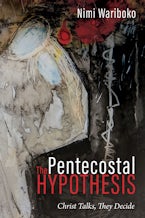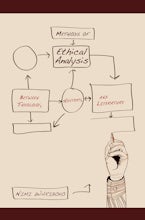The Pentecostal Hypothesis is the capacity to resist conventional wisdom in social actions.
On a daily basis Pentecostals deploy or enact this capacity through the use of the formula: "It does not make sense, but it makes spirit" in their decision-making processes. This is an alternate way of knowing that is keyed to a particular interpretative understanding of Jesus Christ as constitutive of and normative for the good decisions relevant to human flourishing. The book offers a critical-philosophical analysis of the social-ethical implications of this hypothesis intended for private decisions and social actions. This text is ultimately a critique of Pentecostal reason. In this book Wariboko explores the epistemological dimensions of everyday Pentecostal Christology, their interpretation of Jesus's character and nature as epistemology. For Pentecostals Jesus did not have an epistemology, but the story of his life as a whole is an epistemology. For them the validity of a truth claim is always (in)formed by the story of Jesus that claims them, the story that gives them the meaning and courage to affirm their decisions without fear of being contradicted by Enlightenment rationalism. What kind of normative sway does this orientation to modernity have over Pentecostals' pattern of thought? This book configures the response to this question with profound insights into the convergence of epistemology and Christology within the impelling matrix of a provocative social ethics. The epistemological in this book is not about the that of knowing, but the how (the performative dimension) of knowing, which is affective, emotive, and an embodied practice.
The Pentecostal Hypothesis is the capacity to resist conventional wisdom in social actions.
Nimi Wariboko is the Walter G. Muelder Professor of Social Ethics at Boston University.
“Yes, Pentecostals will, and those interested in understanding these believers and their way of being in the world should read this book. But anyone wishing to comprehend further how contemporary Jesus followers might respond to the words of the living Christ in late modernity also ought to pick up this volume since its hypothesis invites participation in a form of christological knowing that may indeed catalyze discipleship in our ambiguous world! Nimi Wariboko remains here, as in his many other works, an elucidator and provocateur!”
—Amos Yong, Dean of the School of Theology and the School of Intercultural Studies, Fuller Theological Seminary
“Defined as the capacity to resist conventional wisdom in personal decision-making, Wariboko’s The Pentecostal Hypothesis offers deep and astounding insights into the critical-theological implications of the hypothesis for private decisions and social actions. . . . Pentecostals foreground knowledge in spiritual reflection, he argues here, but this is not inconsistent with human rationality. This is a very lucid and brilliant work that passes as one of the most cogent to be written on Pentecostal philosophical thought.”
—J. Kwabena Asamoah-Gyadu, Professor of Pentecostal Studies, Trinity Theological Seminary, Legon, Ghana




